6 Matriarchies Still Functioning Today
In these communities, women hold the power.

Mosuo
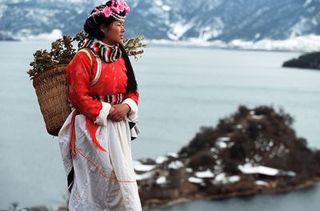
The Mosuo of China (living in the foothills of the Himalayan Mountains) are one of the best-known examples of a matrilineal society, where inheritance is passed down the female line and women have their choice of partners. In fact, they practice something called a "walking marriage," which is essentially the practice of women choosing their partner by walking to his home—and many women have multiple partners/marriages. Children take their mother's name and live with their mothers, while the men may or may not be involved in the raising of the kids. They often live with extended families in large households, with women handling all business decisions. Men often play a role politics, but the most respected person in any household is the grandmother. (For more insight, check out this short documentary.)
Fun fact: There is no word in their language for "father" or "husband."
Minangkabau
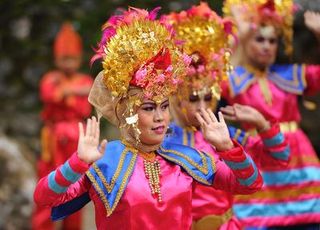
Also known as Minang, this group is located in Indonesia, and is matrilineal in that property, land, and inheritance is passed from mother to daughter. Low inheritance—such as income—is passed from father to son. In the past, this kept women in power, but now, "low income" is taking precedent and making a bit of a change in their modernizing society. Lineage is still traced through the mother's line, though, and the mother is the head of the family. Grooms are traditionally "given away" to the bride by female members of his family, who escort him to the home of the bride. Power and authority are generally shared between men and women, with women ruling the "domestic" sphere and men ruling the political and spiritual roles. Both genders believe this gives each equal footing. While the clan chief is male, women select the chief and have the power to remove him should he fail as a leader.
Akan
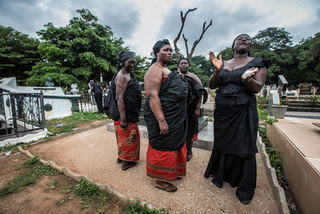
The Akan society is a multi-ethnic group in Ghana, where everything centers around a matriclan, clans founded by women. Men are often leaders of the clan, but their power comes from matrilineal lines—meaning power is descended through the man's mothers and sisters. Men not only support their own families, but also the families of his female relatives. Women conduct many rites and ceremonies—like funerals—and are typically leaders in the food and domestic spheres.
Bribri
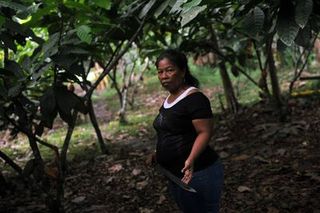
Located in Costa Rica and northern Panama, the Bribri is a matrilineal line where women inherit the lands and create extended families. Children enter the mother's clan, and grandmothers are seen as the arbiters of tradition and knowledge. While men take on roles of importance, they are not allowed to "pass on" this knowledge or job to their sons, but rather only to their female relatives' sons. Women are given the right and ritual to prepare the cacao used in sacred Bribri rituals, giving them utmost importance in any clan.
Garo
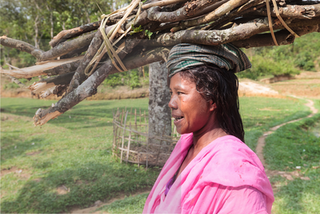
An indigenous group in India and Bangladesh, Garos take clan titles from their mothers, with the youngest daughters inheriting property from their mother. While the society is matrilineal, men do hold power and are given the right to govern.
Tuareg
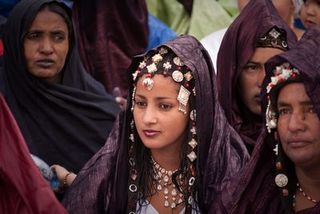
Tuareg are Berber people who live a nomadic lifestyle living in the Saharan dessert. In society, women have high status and the tribes are organized into confederations, where many women hold the power of reading and writing, with men herding livestock. Livestock and other movable property, however, are owned largely by women, whereas personal property is owned and inherited regardless of gender. The Tuareg are Muslim but are also influenced by their pre-existing beliefs—including matrilineal customs.
Stay In The Know
Get exclusive access to fashion and beauty trends, hot-off-the-press celebrity news, and more.
Follow Marie Claire on Instagram for the latest celeb news, pretty pics, funny stuff, and an insider POV.

Samantha Leal is the Deputy Editor at Well+Good, where she spends most of her day thinking of new ideas across platforms, bringing on new writers, overseeing the day-to-day of the website, and working with the awesome team to produce the best stories and packages. Before W+G, she was the Senior Web Editor for Marie Claire and the Deputy Editor for Latina.com, with bylines all over the internet. Graduating from the Medill School of Journalism at Northwestern University with a minor in African history, she’s written everything from travel guides to political op-eds to wine explainers (currently enrolled in the WSET program) to celebrity profiles. Find her online pretty much everywhere @samanthajoleal.
-
 Hugh Grant Says His 'Notting Hill' Character is "Despicable"
Hugh Grant Says His 'Notting Hill' Character is "Despicable""I just think, 'Why doesn't my character have any balls?'"
By Danielle Campoamor Published
-
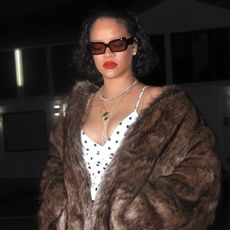 Rihanna Out-Rihannas Herself in a Statement Fur Coat and Polka Dot Dress
Rihanna Out-Rihannas Herself in a Statement Fur Coat and Polka Dot DressWhen it comes to fashion, the singer and entrepreneur is simply competing with herself.
By Danielle Campoamor Published
-
 Selena Gomez Dresses Down Her Platform Prada Loafers With a Classic Blazer and Jeans
Selena Gomez Dresses Down Her Platform Prada Loafers With a Classic Blazer and JeansThe 'Only Murders in the Building' star dressed to impress during a pizza dinner date with her sister.
By Danielle Campoamor Published
-
 'We Were Never Here' Will Cure Your Wanderlust
'We Were Never Here' Will Cure Your Wanderlust...But not in the way that you think!
By Marie Claire Published
-
 This Summer, Let's Escape
This Summer, Let's EscapeAfter 15 months spent stuck, it's time to get away. Whether you're taking an actual put-up-an-out-of-office-and-stamp-that-passport vacation (hello, TSA officer, how I've missed you!) or just looking for a new place to explore in your imagination, we've got you covered, right here.
By Marie Claire Published
-
 Is Wellsbury From 'Ginny & Georgia' a Real Place?
Is Wellsbury From 'Ginny & Georgia' a Real Place?That idyllic Massachusetts town is just a little too good to be true.
By Andrea Park Last updated
-
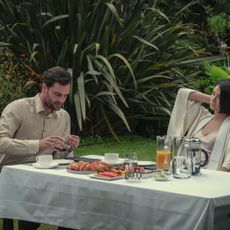 The 'Behind Her Eyes' Filming Locations Are Just as Mesmerizing as the Netflix Thriller
The 'Behind Her Eyes' Filming Locations Are Just as Mesmerizing as the Netflix ThrillerHere's how to retrace David, Adele, and Louise's steps across England and Scotland—if you dare.
By Andrea Park Published
-
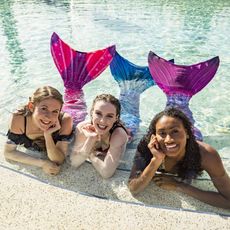 I Attended Disney World’s Mermaid School
I Attended Disney World’s Mermaid SchoolHalle Bailey and Jodie Benson have nothing on me.
By Laura Studarus Published
-
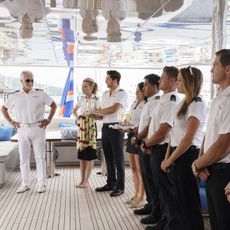 How Real Is Bravo's 'Below Deck'?
How Real Is Bravo's 'Below Deck'?A charter broker makes waves with the truth behind the reality show.
By Alyssa Haak Published
-
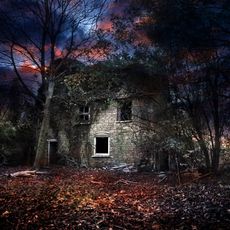 A Haunted House In Tennessee Will Pay You $20,000 If You Make It to the End
A Haunted House In Tennessee Will Pay You $20,000 If You Make It to the EndYou need to sign a 40-page waiver, make up a safe word, and get a doctor’s note to even get through the doors.
By Megan Stein Published
-
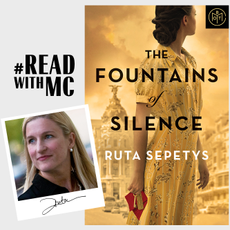 Ruta Sepetys' 'The Fountains of Silence' Explores Spain's Dark History
Ruta Sepetys' 'The Fountains of Silence' Explores Spain's Dark HistoryBut it also includes a lot of love.
By Rachel Epstein Published